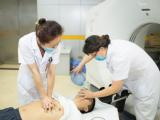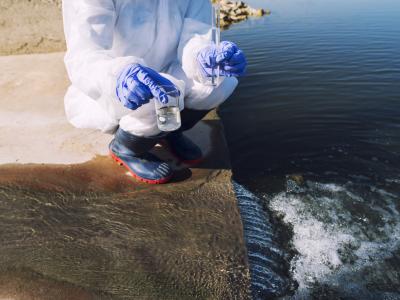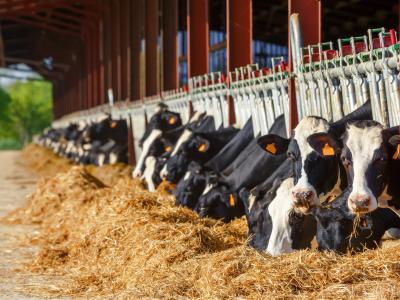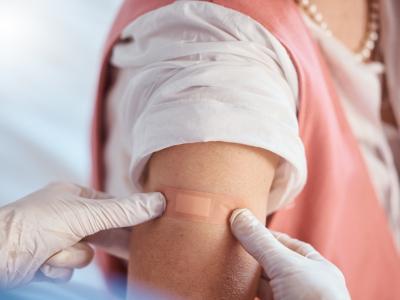A new MERS-CoV seroprevalence study of camel workers in Abu Dhabi found high levels for people in certain jobs, as Saudi Arabia—the country hit hardest by the virus—reported three more cases, all in people who contracted the virus from other patients.
Exposures in markets, slaughterhouses
For the seroprevalence study, a research team from the United Arab Emirates (UAE) and the US Centers for Disease Control and Prevention (CDC) examined blood samples of camel workers from 2014 to 2017. Some workers were from an open-air camel market in Abu Dhabi linked to a 2015 human case, and others worked at two of the city's camel slaughterhouses.
Their goals were to sift out specific risk factors that seem more likely to lead to MERS-CoV (Middle East respiratory syndrome coronavirus) transmission to help guide steps to prevent infections in people and to pinpoint risk groups that would benefit from a future vaccine. The team published its findings yesterday in an early online edition of Emerging Infectious Diseases.
Three rounds of blood sampling took place during the study period, and though all workers were asked to provide samples, participation was voluntary. Some workers were repeatedly sampled during multiple rounds.
During the third round of sampling, investigators administered a survey to gather information about worker demographics, travel history, consumption of raw camel products (meat, milk, and urine, which is actually a practice for some in the country), camel-related work tasks, personal protective equipment use, and handwashing practices.
Levels highest in camel salesmen
Antibody tests on blood samples were conducted at the CDC.
Round 1 involved samples from 100 workers, round 2 from 151 workers, and round 3 from 235 workers. MERS-CoV antibodies were found in 6% of samples from round 1, 19% from round 2, and 17% from round 3.
Among all workers, MERS-CoV seroprevalence was especially high for certain occupations, especially camel salesmen (49%) and animal or waste transporters (22%). Self-reported diabetes was another factor linked to being seropositive, which fits with earlier reports of underlying health conditions as a risk factor for MERS-CoV infection.
Of just the market workers, giving medications to live camels and using cleaning equipment were associated with increased risk of being seropositive for MERS-CoV.
Among other findings, MERS-CoV was detected in market camels during the study period, and one worker seroconverted, hinting at active transmission from camels to people.
"Taken collectively, our findings suggest an underestimated prevalence of human MERS-CoV infection in settings where the virus is circulating among camels, probably resulting from camel-to-human transmission," the group wrote.
New cases include 1 from Khafji outbreak
Meanwhile, in Saudi Arabia's steady stream of new cases, the country's health ministry reported three new infections in updates yesterday and today in its epidemiologic week 15 report. All involve men listed as secondary cases, meaning they probably contracted the virus from another sick patient. Camel exposure is listed as unknown for all three.
One of them, age 34, appears to be part of an outbreak in Khafji in northeastern Saudi Arabia near the border with Kuwait, which has now grown to 11 cases.
The other patients include a 42-year-old from Ad Darb in the country's far southwestern Jazan region and a 64-year-old from Al Kharj in central Saudi Arabia.
Saudi Arabia has now reported 129 cases for the year.
In an update today from the World Health Organization (WHO) Eastern Mediterranean regional office, officials said 9 more cases have been linked to a large outbreak in Wadi ad-Dawasir, raising the total as of the end of March to 61 cases, 8 of them fatal.
The agency added that Saudi Arabia's health ministry has launched a full investigation of the event, including efforts to identify all household and healthcare contacts of patients with confirmed infections. Infection prevention and control steps have been enhanced at health facilities, including for workers in emergency room and intensive care units.
The WHO's snapshot of MERS-CoV activity for March also said 25 cases were reported for the month, all in Saudi Arabia. It put the latest global total since the first human cases were identified in 2012 to 2,399, at least 827 of them fatal. More than 90% of the cases are from Saudi Arabia.
See also:
Apr 10 Emerg Infect Dis abstract
Apr 11 MOH update
Apr 10 WHO MERS update for March




















